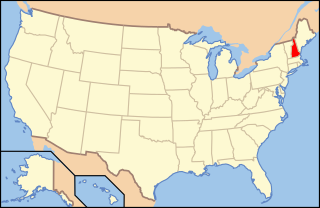Related Research Articles

The Centers for Disease Control and Prevention (CDC) is the national public health agency of the United States. It is a United States federal agency, under the Department of Health and Human Services, and is headquartered in Atlanta, Georgia.

Gun control, or firearms regulation, is the set of laws or policies that regulate the manufacture, sale, transfer, possession, modification, or use of firearms by civilians.

The Brady Handgun Violence Prevention Act, often referred to as the Brady Act or the Brady Bill, is an Act of the United States Congress that mandated federal background checks on firearm purchasers in the United States, and imposed a five-day waiting period on purchases, until the National Instant Criminal Background Check System (NICS) was implemented in 1998. The act was appended to the end of Section 922 of title 18, United States Code. The intention of the act was to prevent persons with previous serious convictions from purchasing firearms.

Gun politics is an area of American politics defined by two primary opposing ideologies about civilian gun ownership. People who advocate for gun control support strengthening regulations related to gun ownership; people who advocate for gun rights oppose new regulations or support loosening restrictions related to gun ownership. These groups often disagree on the interpretation of laws and court cases related to firearms as well as about the effects of firearms regulation on crime and public safety. It is estimated that U.S. civilians own 393 million firearms, and that 35% to 42% of the households in the country have at least one gun. The U.S. has by far the highest estimated number of guns per capita in the world, at 120.5 guns for every 100 people.

Jay Woodson Dickey Jr., was a Republican U.S. Representative for Arkansas' 4th congressional district from 1993 to 2001. The amendment known as the Dickey Amendment (1996) blocks the Centers for Disease Control and Prevention from funding injury prevention research that might promote gun control, and the Dickey–Wicker Amendment (1995) prohibits federal funds to be spent on research that involves the destruction of a human embryo. After the 2012 Aurora, Colorado shooting, former congressman Dickey said that he regretted his role in blocking the CDC from researching gun violence.
Rebecca Peters is a political advocate for gun control who served as Director of the International Action Network on Small Arms (IANSA) from 2002 to 2010. As of April 2012, Peters was listed on the IANSA board of directors.

The Violence Against Women Act of 1994 (VAWA) is a United States federal law signed by President Bill Clinton on September 13, 1994. The Act provided $1.6 billion toward investigation and prosecution of violent crimes against women, imposed automatic and mandatory restitution on those convicted, and allowed civil redress when prosecutors chose to not prosecute cases. The Act also established the Office on Violence Against Women within the U.S. Department of Justice.
The Violence Policy Center (VPC) is an American nonprofit organization that advocates for gun control.
Josh Sugarmann is an American activist for gun control in the United States. He is the executive director and founder in 1988 of the Violence Policy Center (VPC), a non-profit advocacy and educational organization, and the author of two books on gun control. He has written a blog on these issues for the Huffington Post and publishes opinion pieces in the media.
The Joyce Foundation is a non-operating private foundation based in Chicago, Illinois. As of 2021, it had assets of approximately $1.1 billion and distributes $50 million in grants per year and primarily funds organizations in the Great Lakes region.

Gun violence in the United States results in tens of thousands of deaths and injuries annually, and was the leading cause of death for children 19 and younger in 2020. In 2018, the most recent year for which data are available as of 2021, the Centers for Disease Control and Prevention's (CDC) National Center for Health Statistics reports 38,390 deaths by firearm, of which 24,432 were by suicide. The rate of firearm deaths per 100,000 people rose from 10.3 per 100,000 in 1999 to 12 per 100,000 in 2017, with 109 people dying per day or about 14,542 homicides in total, being 11.9 per 100,000 in 2018. In 2010, there were 19,392 firearm-related suicides, and 11,078 firearm-related homicides in the U.S. In 2010, 358 murders were reported involving a rifle while 6,009 were reported involving a handgun; another 1,939 were reported with an unspecified type of firearm. In 2011, a total of 478,400 fatal and nonfatal violent crimes were committed with a firearm.

Gun-related violence is violence committed with the use of a firearm. Gun-related violence may or may not be considered criminal. Criminal violence includes homicide, assault with a deadly weapon, and suicide, or attempted suicide, depending on jurisdiction. Non-criminal violence includes accidental or unintentional injury and death. Also generally included in gun violence statistics are military or para-military activities.
The U.S. Centers for Disease Control and Prevention's National Center for Injury Prevention and Control's mission is to provide leadership in preventing and controlling injuries, i.e., reducing the incidence, severity, and adverse outcomes of injury, the leading cause of death for those aged 1 – 44. A 1985 National Research Council report entitled Injury in America recommended that United States Congress establish a new program at the CDC to address the problem of injury. Initially the program was supported with funds from the United States Department of Transportation. In 1990 Congress passed the Injury Control Act which authorized the program within the CDC, and in 1992, the CDC formally established the Center. The Center has three branches: the Division of Acute Care, Rehabilitation Research, and Disability Prevention; the Division of Unintentional Injury Prevention; and the Division of Violence Prevention.

David Hemenway is a Professor of Health Policy at the Harvard School of Public Health. He has a B.A. (1966) and Ph.D. (1974) from Harvard University in economics. He is the director of the Harvard Injury Control Research Center and the Harvard Youth Violence Prevention Center. He is also currently a James Marsh Visiting Professor-at-Large at the University of Vermont. Hemenway has written over 130 articles and five books in the fields of economics and public health.
Giffords is an American advocacy and research organization focused on promoting gun control. The organization draws its name from of one of its co-founders, Gabby Giffords, a former Democratic member of the U.S. House of Representatives. Rep. Giffords was shot along with 18 others at a constituent meeting in Tucson in 2011. The organization has three parts: a 501(c)(4) lobbying arm, a 501(c)(3) research arm, and a super PAC. It was previously known in a different configuration as Americans for Responsible Solutions.

Gun laws in New Hampshire regulate the sale, possession, and use of firearms and ammunition in the state of New Hampshire in the United States. New Hampshire's gun laws are amongst some of the most permissive in the United States; while the state has not had a mass shooting event since 1982, its gun death rate is double neighboring Massachusetts, which has among the strictest gun laws in the U.S. This is driven entirely by a difference in suicide rates between New Hampshire and Massachusetts, since New Hampshire also has the lowest per capita murder rate of any state, which is less than half the per capita murder rate in Massachusetts. New Hampshire has the 9th lowest gun death rate of the 50 states.

The Trace is an American non-profit journalism outlet devoted to gun-related news in the United States. It was established in 2015 with seed money from the largest gun control advocacy group Everytown for Gun Safety, which was founded by former New York City mayor Michael Bloomberg, and went live on 19 June of that year. The site's editorial director is James Burnett.
The Dickey Amendment is a provision first inserted as a rider into the 1996 omnibus spending bill of the United States federal government that mandated that "none of the funds made available for injury prevention and control at the Centers for Disease Control and Prevention (CDC) may be used to advocate or promote gun control." In the same spending bill, Congress earmarked $2.6 million from the CDC's budget, the exact amount that had previously been allocated to the agency for firearms research the previous year, for traumatic brain injury-related research.

Tamika Danielle Mallory is an American activist. She was one of the leading organizers of the 2017 Women's March, for which she and her three other co-chairs were recognized in the TIME 100 that year. She received the Coretta Scott King Legacy Award from the Coretta Scott King Center for Cultural and Intellectual Freedom in 2018. Mallory is a proponent of gun control, feminism, and the Black Lives Matter movement.

Kina Isis Collins is an American community organizer and activist, whose work has focused on issues of gun violence, criminal justice reform, and universal healthcare. Collins was a candidate in the 2022 U.S. House election for Illinois' 7th congressional district Democratic primary, and was previously a primary candidate for the same seat in the 2020 election.
References
- ↑ Reinberg, Steven (12 May 2011). "U.S. Murder Toll From Guns Highest in Big Cities: CDC". U.S. News & World Report. Retrieved 24 April 2017.
- ↑ Doherty, Brian (5 January 2016). "You Know Less Than You Think About Guns". Reason. Retrieved 24 April 2017.